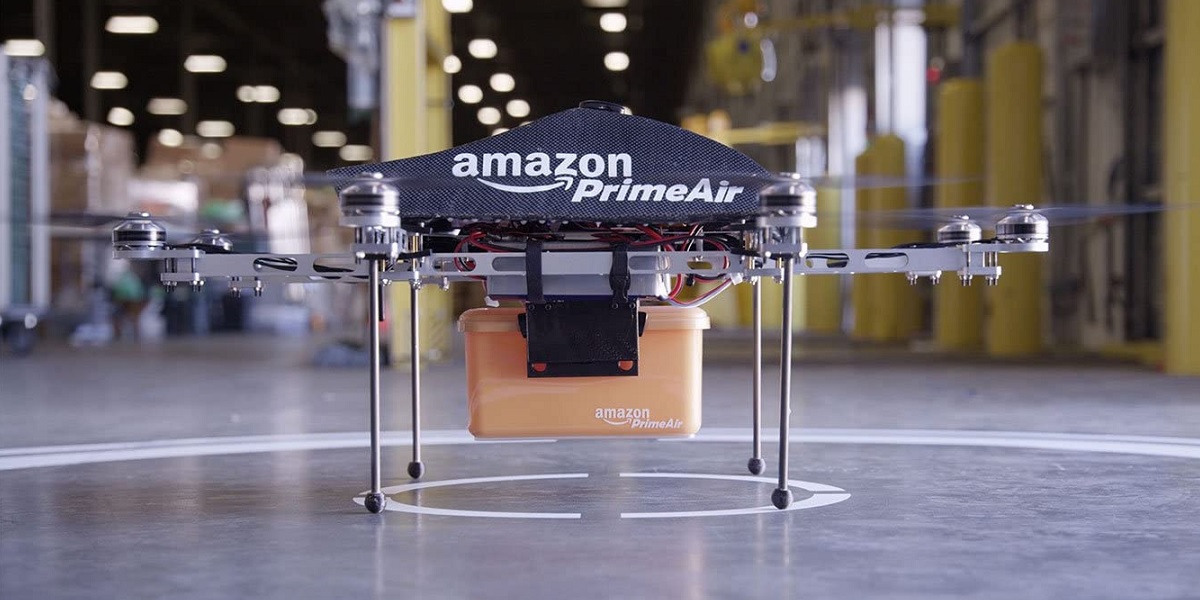
|
|
A pandemic could be a tipping point for a technology we’ve been promised for nearly a decade.
China’s use of drones and robots in its fight to contain Covid-19 is now well publicised, with medical authorities and security forces employing autonomous agents to limit human contact and so the spread of the virus.
However, e-commerce companies and other technology firms have been talking about the promise of commercial drone services for some years now, where drones can deliver prepared food, groceries, medicine and other online purchases directly to the consumer in a matter of minutes.
In reality, while the technology is largely ready, commercial drone delivery – a new market that, according to Markets and Markets, could be worth more than $27 billion (Dh99bn) by 2030 — has long been held up by lack of government policy and regulation. Could the demands of fighting Covid-19 actually fast-track the introduction of drones to the masses?
The benefits of drone delivery have already been clearly demonstrated by China’s response to the coronavirus emergency. In an effort to both increase the speed of medical deliveries and remove unnecessary human contact, drones have been used widely in the country’s virus-stricken provinces.
Chinese firms, such as e-commerce giant JD.com, drone delivery start-up Antwork, drone maker MicroMultiCopter and China’s largest private courier company SF Express, have all deployed drones to help deliver medical supplies and transport medical samples for analysis. By using drones, healthcare authorities are assured of faster and “contactless delivery”.
China has also used drones fitted with thermal cameras to scan crowds and identify those that may be in need of medical treatment; drones have been carrying sanitisers to spray densely populated communities; and police security drones have reminded city pedestrians to wear protective face masks. Chinese drone manufacturer DJI mounted loudspeakers on its drones to help police disperse crowds in public places.
Predictably, China’s use of drones has also sparked new concerns about electronic surveillance and infringements on human rights from private tech companies.
However, for those watching the development of drone delivery services, it appears the vast majority of drone usage during China’s health emergency has been state-sponsored and limited in scope. Although drones have been used for emergency food delivery by government authorities, commercial services haven’t moved beyond pilot projects.
Food and shopping delivery trials have been conducted by AntWork, Alibaba, JD.com and others, but, despite the new public demand for contactless delivery, no fully commercial services have yet been rolled out. Delivery app Meituan Dianping began delivering grocery orders in China using autonomous vehicles last month, as part of a contactless delivery initiative, but has not yet been able to launch its planned drone delivery service.
Elsewhere in the world, drone delivery trials have been taking place for years. Amazon began talking about plans for e-commerce deliveries using unmanned aerial vehicles (UAVs) in 2013 and launched its Prime Air aerial delivery system brand in 2016, making its first drone delivery to a customer in the city of Cambridge, England. However, despite announcements over the past year that Prime Air would be ready to begin commercial services in the UK within a matter of months, no service has been rolled out yet.
Irish drone delivery firm Manna plans to launch a new food delivery pilot this month, servicing a suburb of about 30,000 South Dublin residents. American ice cream brand Ben & Jerry’s, UK food delivery firm Just Eat, and Irish restaurant chain Camile Thai have all signed up to take part in the pilot project.
Meanwhile, Alphabet-owned Wing, which last year became the first Federal Aviation Administration certified air carrier, has been testing drone delivery more extensively in Australia, Finland and the US, completing over 80,000 flights. Since then, logistics giant UPS has also received US government approval to operate a drone carrier in preparation for making commercial, medical and industrial deliveries.
As governments across the globe look for ways to prevent the spread of a new highly contagious virus, fast-tracking contactless delivery options seems to make enormous sense. Contactless deliveries of all kinds could prove to be a vital tool to limit exposure to infected individuals, deliver essential medicine and food to high-risk locations and allow people to self-isolate, while still being able to get their groceries.
No doubt, logistics and e-commerce industries are hoping the coronavirus crisis brings more government focus to solving these regulatory obstacles.
This story was first published in The National.
by Carrington Malin
Carrington Malin is a UAE-based marketing and communications professional, consultant, entrepreneur and writer with many years experience of building brands, driving growth and leading high-performance teams. He has worked with a wide range of high-growth, technology and tech-driven ventures across ecommerce, consumer products, digital services, B2B, media, software, hardware and other sectors. These days he focuses mainly on emerging technology ventures related to artificial intelligence (AI), augmented reality (AR) / virtual reality (VR), blockchain, drones, Internet of Things (IoT), robotics and smart cities.

